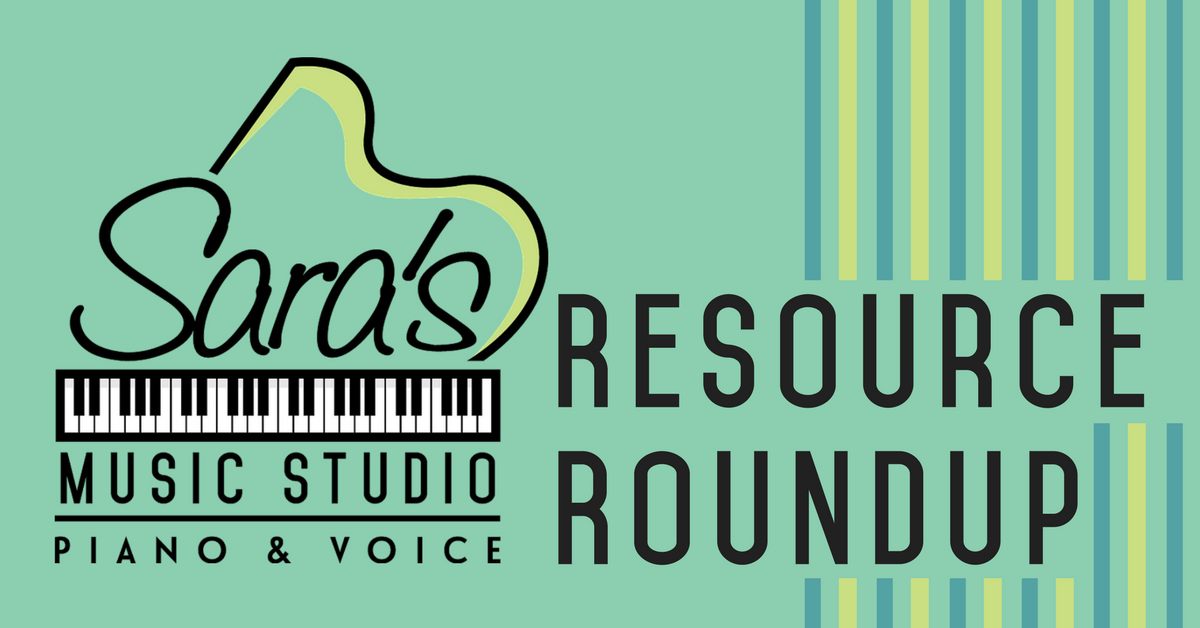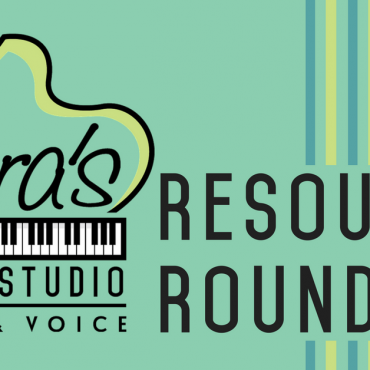Resource Roundup: Solar Eclipse, Voice Podcast, & Effective Practice
Here’s this weeks Roundup:
Solar Eclipse Music
First… did you notice that Wendy Stevens’ new website is finished? It’s GORGEOUS! I love the layout, and now it’s super easy to browse her store. This week she also released a piece about the Solar Eclipse.
These are the kinds of pieces that I think can be used with almost any age in your studio. It’s great for elementary levels, but it could also be a great improv-jump-point for students who are more advanced.
Voice Podcast
I’m a big fan of Sarah Whitten and I’m a huge fan of the Full Voice Podcast. What do you get when you combine those two things?
Something AMAZING.
The Posture vs. Alignment Interview with Voice and Yoga Teacher Sarah Whitten is chalked full of information! Sarah’s approach to alignment is so refreshing, and at only 35 minutes long, this podcast is long enough to really inform, but short enough that you can listen all in one sitting. (Or standing. I like to clean when I listen to podcasts… anyone else do that?)
Effective Practice
This us one of my go-to posts for teaching practice habits to my students. I’ve shared it all over the place. I’ve taught the concepts during lessons. I’ve even printed out the images to post in my studio! It’s a wonderful blog post, and even if it takes a few times through to absorb all the information… it’s WELL WORTH THE READ.
Not only does Gregg break down the learning process and list effective ways to practice… he also explains part of the science behind it:
Neurons communicate by sending electrochemical impulses (called action potentials) down a tube called an axon, across a gap called a synapse into another neuron. The axons in this newly formed network are uninsulated, and the action potential leaks out and travels slowly.
Attached to axons are cells called oligodendrocytes that produce an insulating substance called myelin. So, each time you do a repetition of, say, a short melody, if fires off an action potential that triggers the production of a little bit of myelin which insulates the axon so that the signal can stay strong and travel faster.
So is there anything you would like to be able to do stronger and faster on your instrument?
If you practice it even a little bit incorrectly, you are myelinating the wrong axons. Do you see why slowly and accurately works, and why the method many use – trying to play fast – does not work?
How’s that for an explanation? Crazy, right? (Pssst… It’s an AWESOME link to send to your adult students!)
And that’s it for this week’s Resource Roundup! I hope you enjoyed these recommendations… check back next week for more! ????






